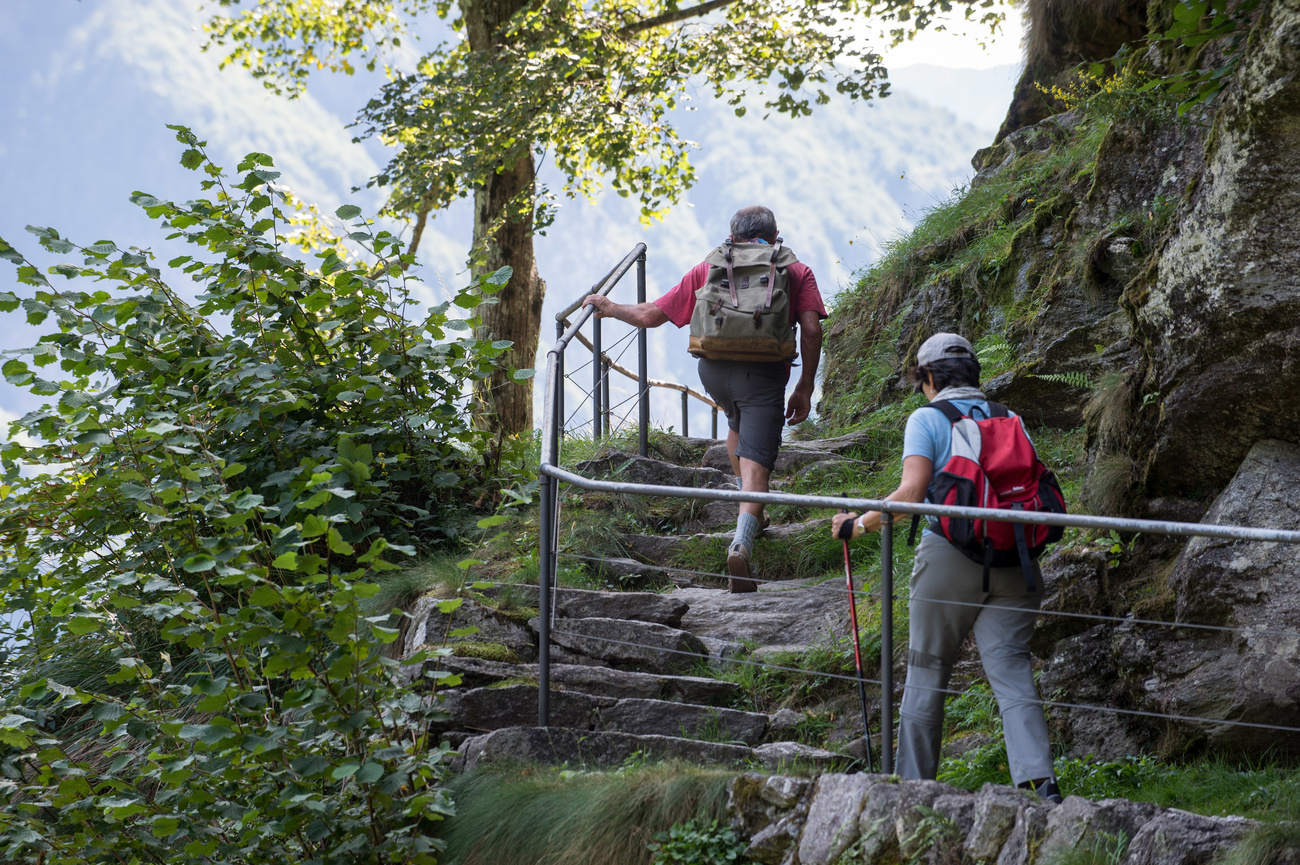
Mixed results for landscape protection in Switzerland

Landscape conservation has been strengthened in Switzerland over the past ten years. But recent parliamentary decisions on renewable energy are calling these achievements into question, warns the Swiss Foundation for Landscape Conservation.
In 2000, the Council of Europe drew up the European Landscape Convention, which is intended to promote measures for the conservation, enhancement, restoration and maintenance of the landscape. Switzerland has played an active role in this area, the foundation said in a statementExternal link on Tuesday.
Switzerland only ratified the Convention 12 years later. In a study, the foundation has now drawn up an initial assessment. It shows that landscape conservation has been strengthened at all levels. The government has adopted a “Swiss Landscape” action plan and a monitoring programme, “Swiss Landscape Observation”.
But gaps remain, the foundation says. The training of specialists in landscape issues leaves much to be desired, as does the definition of landscape quality objectives at cantonal and communal level, and the integration of the issue of landscape into certain sectoral laws and the subsidy system.
Urgent legislation
Above all, the legislation recently rushed through parliament to rapidly develop renewable energies is a real problem, it says. The authors also call into question the achievements of the European Landscape Convention.
Last autumn, parliament decided on a solar offensive limited to the end of 2025 to increase electricity production in winter. It has also just added a wind offensive, due to come into force at the beginning of 2024, in order to rapidly implement wind farm projects that are already well advanced.
The plan is to limit the number of objections and shorten the time required for appeals. These measures will be enshrined in the new law on the development of renewable energies.
Yet landscape protection is becoming increasingly important, the foundation concludes. Not only for biodiversity and climate protection, but also for tourism, regional identification and leisure activities.

More
A third of Switzerland’s landscapes are undeveloped

In compliance with the JTI standards
More: SWI swissinfo.ch certified by the Journalism Trust Initiative





























You can find an overview of ongoing debates with our journalists here . Please join us!
If you want to start a conversation about a topic raised in this article or want to report factual errors, email us at english@swissinfo.ch.